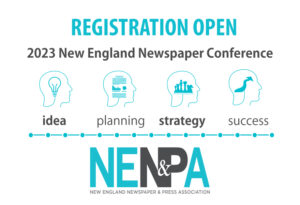
Get ready for an exciting opportunity to connect, learn, and grow at the New England Newspaper Conference on October 19!
This event is being held virtually on the NENPA online community platform.
Our annual gathering brings together top executives from New England’s leading news organizations. It’s a place where collaboration happens, innovative ideas are shared, and the challenges facing today’s media industry are discussed.
We are excited to announce that the conference program is now available below and tickets are on sale. A rich array of executive-level speakers and discussions await you during the event.
Several award presentations are also held during the event: the announcement of the Publick Occurrences Award winners, the New England Newspaper of the Year Awards, and the recipients of four additional prestigious awards.
2023 New England Newspaper Conference Program
8:30 – 9:00 AM
Election of NENPA Officers
9:00 – 10:00 AM
New business models to support local news
In this session, Ross McDuffie, chief portfolio officer of the National Trust for Local News, will provide valuable insights on their emerging business model and the transformation work underway to future-proof local news. Specifically, he will delve into the National Trust for Local News and the Maine Trust for Local News, two organizations established to conserve, transform, and sustain local news.
10:00 – 11:00 AM
Current challenges in local news and reestablishing trust with readers
Brian Stelter, author, former chief media correspondent for CNN Worldwide, and former media reporter for the New York Times, will discuss the current challenges in local news and strategies for building or reestablishing trust with readers.
11:00 – 11:30 AM
Announcement of Publick Occurrences Awards
Presentation of the annual Publick Occurrences Awards, recognizing the finest work that New England newspapers produce each year in individual or team stories, series, spot news coverage, columns, or photojournalism that ran in print and/or online.
1:00 – 2:00 PM
How to attract and retain younger readers
Who are the younger consumers and how do we capture their attention? We know they consume media differently, work differently and shop differently than their older counterparts. Kerry Twibell, a partner at The AQ, will share invaluable strategies to reach and engage this younger demographic. Her insightful advice will focus on attracting and retaining the younger generation of readers. Twibell is a proven expert in aiding companies to achieve growth. Her expertise lies in advising and assisting tech and media companies by leveraging market positioning and strategic partnerships to drive revenue.
2:00 – 3:00 PM
Innovation at local newsrooms and connecting with your community
Michael Bolden, the CEO and executive director of the American Press Institute, will offer a comprehensive vision for the future of local news, essential for those invested in community well-being and journalism. He will highlight the opportunity to use challenges as catalysts for innovation, forging a future for local journalism that is more robust, inclusive, and deeply connected to the communities it serves.
3:00 – 3:30 PM
Announcement of Individual Awards and Newspapers of the Year
Presentation of the annual Allan B. Rogers Editorial Award, New England First Amendment Award, AP Sevellon Brown New England Journalist of the Year, Bob Wallack Community Journalism Award, and the New England Newspaper of the Year Awards.

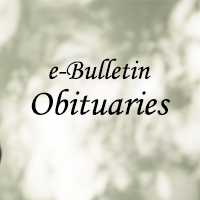
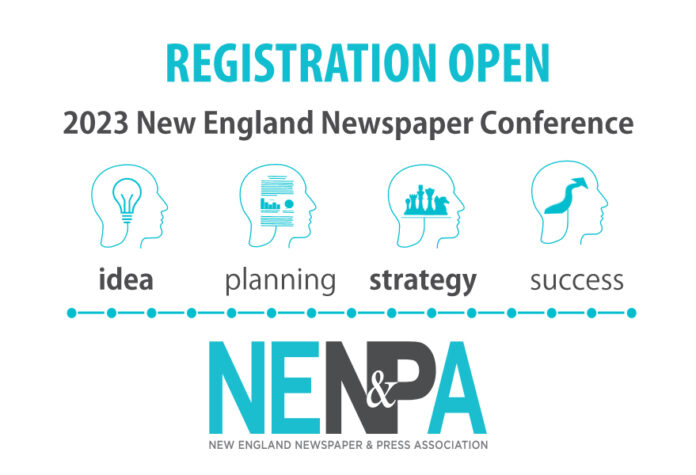


 In an era where information flows faster than ever before, newsrooms face the constant challenge of staying ahead of the curve, delivering accurate and timely news to an increasingly discerning audience. Artificial Intelligence (AI) has emerged as a powerful tool in the realm of journalism, potentially revolutionizing the way stories are discovered, developed, and delivered.
In an era where information flows faster than ever before, newsrooms face the constant challenge of staying ahead of the curve, delivering accurate and timely news to an increasingly discerning audience. Artificial Intelligence (AI) has emerged as a powerful tool in the realm of journalism, potentially revolutionizing the way stories are discovered, developed, and delivered.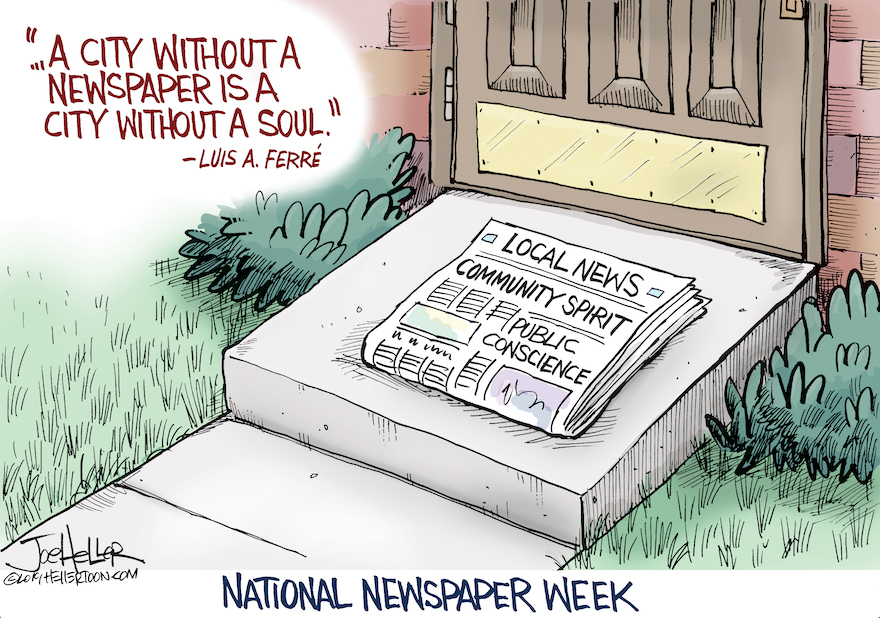
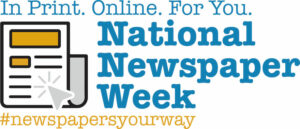 In 2023, the 83rd National Newspaper Week will be celebrated. Since 1940, the
In 2023, the 83rd National Newspaper Week will be celebrated. Since 1940, the 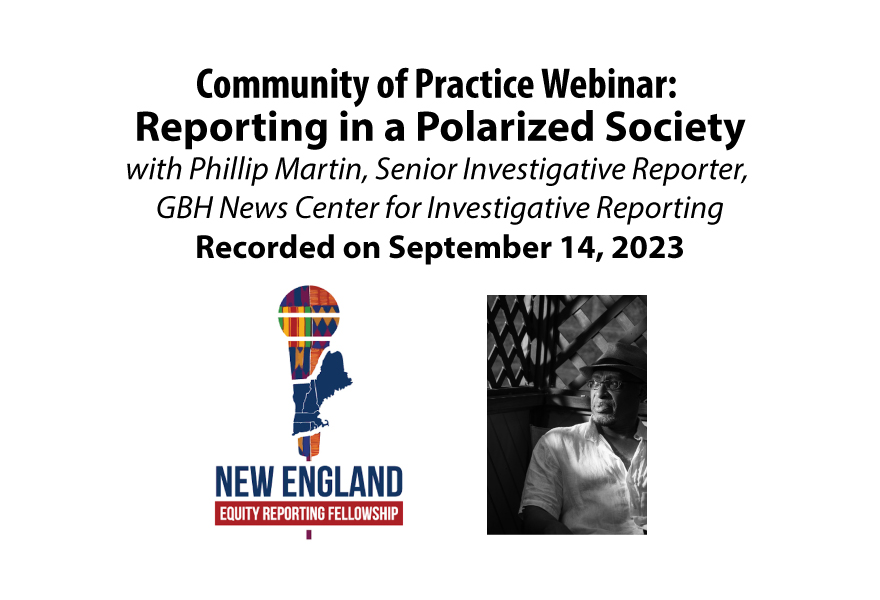
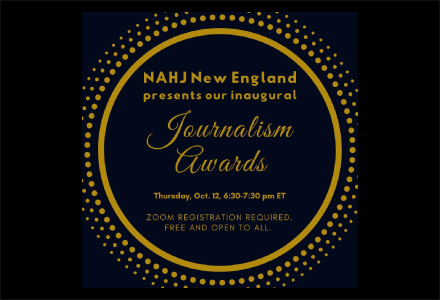
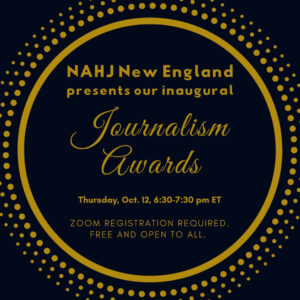
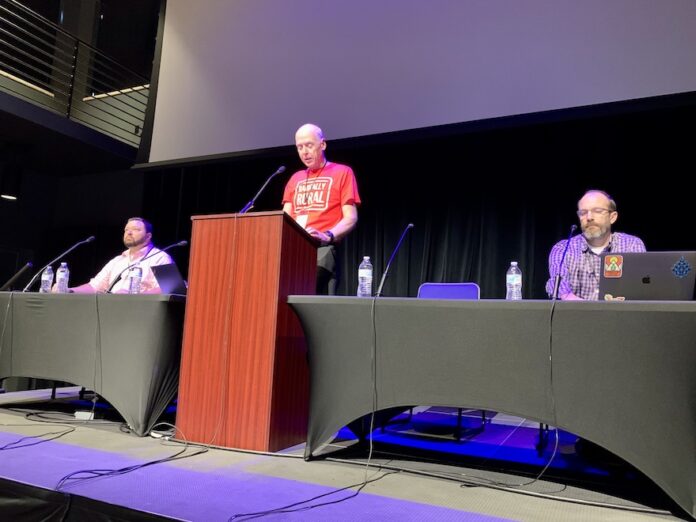
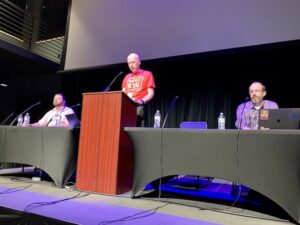
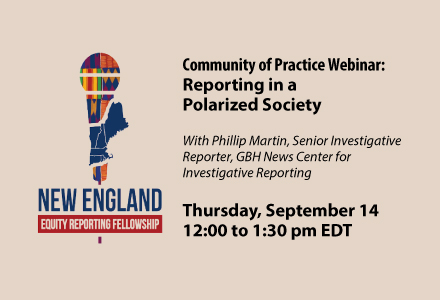
 Phillip Martin is Senior Investigative Reporter for The GBH News Center for Investigative Reporting. He is a multi-award-winning journalist. In 2022, he was selected as a Shorenstein Fellow at Harvard University’s Shorenstein Center at the Kennedy School of Government. Other honors include a 2022 National Edward R. Murrow Award for Excellence in Diversity, Equity, and Inclusion for the multi-part GBH News series Unseen. He also received National Edward R. Murrow awards in 2019 and 2014 for investigative reporting on human trafficking.
Phillip Martin is Senior Investigative Reporter for The GBH News Center for Investigative Reporting. He is a multi-award-winning journalist. In 2022, he was selected as a Shorenstein Fellow at Harvard University’s Shorenstein Center at the Kennedy School of Government. Other honors include a 2022 National Edward R. Murrow Award for Excellence in Diversity, Equity, and Inclusion for the multi-part GBH News series Unseen. He also received National Edward R. Murrow awards in 2019 and 2014 for investigative reporting on human trafficking.
NEFAC Announces 2023 New England First Amendment Institute Journalism Fellows
The New England First Amendment Coalition is pleased to announce the incoming class of fellows for its 2023 New England First Amendment Institute.
Now in its 13th year, the Institute provides support and training for New England journalists and gives them the tools they need to become more accomplished investigative reporters, well-versed in the freedom of information laws that govern today’s difficult reporting landscape.
The Institute — provided at no cost to those who attend — is Oct. 29-31 at Northeastern University in Boston and features many of the country’s elite reporters, editors, and media attorneys. About 300 journalists have attended the Institute since it began in 2011.
Keynote speakers this year are Eric Meyer, publisher and editor of the Marion County Record, the weekly newspaper in Kansas that recently made national headlines when local sheriffs raided its newsroom; Sisi Wei, Editor-in-Chief of The Markup, a nonprofit, investigative newsroom that challenges technology to serve the public good; and Brian Rosenthal, Pulitzer Prize-winning investigative reporter at The New York Times and the president of Investigative Reporters and Editors.
Read more and meet the Fellows at nefac.org